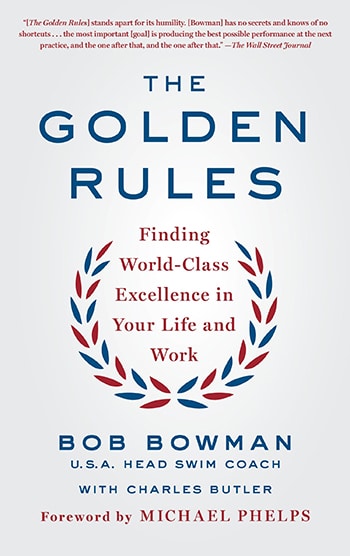Podcast Summary
Reflecting on the past year and setting intentions for the future: Take time to evaluate major lessons learned from the past year and focus on a short list of themes or principles for the upcoming year to prioritize and create meaningful goals.
The beginning of a new year provides an opportunity for reflection and goal-setting, which can be enhanced by recognizing the power of rituals and stepping back from the constant influx of daily life. Dr. Rick Hansen and Forrest Hanson discussed the importance of taking stock of the past year and evaluating major lessons learned, while also focusing on a short list of themes or principles for the upcoming year. This process can help individuals prioritize and create meaningful goals, allowing them to focus on what truly matters and avoid being swept along by external forces or habit patterns. By reflecting on the past and setting intentions for the future, individuals can make the most of this annual transition and set themselves up for personal growth and well-being.
Focus on top priorities to increase success and productivity: Identify and eliminate distractions, be aware of thoughts hindering progress, and protect important but not urgent tasks to maintain focus on what truly matters
Focusing on a limited number of priorities can lead to greater success and productivity. Warren Buffett's advice to rank and prioritize goals, then eliminate or avoid the rest, can help individuals maintain focus on what truly matters. This process, as Buffett frames it, involves identifying and eliminating distractions that prevent progress towards the top priorities. While this approach may seem harsh, it can lead to increased effectiveness and accomplishment. Additionally, being aware of thoughts and feelings that may hinder progress, such as self-doubt or anticipatory defeat, is crucial for maintaining motivation and staying on track with goals. By using tools like Stephen Covey's 2x2 matrix to identify and protect important but not urgent tasks, individuals can ensure they are focusing on what truly matters in both their personal and professional lives.
Visualize and sequence your goals for the year: Imagine your goals as already accomplished or in progress, sequence them, and visualize rewards to train your brain for success
Setting and achieving goals requires self-awareness, planning, and resourcefulness. One common pitfall is having too many goals that crowd out the most important ones. Another is feeling defeated before even starting. To set yourself up for success, consider sequencing your goals for the year and visualizing their accomplishment. This can help you distribute your major goals over a timescale, imagine the rewards, and train your brain to expect success along the way. Additionally, recognize that to accomplish a goal, you may need to resource yourself by identifying and acquiring necessary tools, people, or skills. Avoid masking your goals early on and giving up when overwhelmed. Instead, imagine the year unfolding as if your goals are already accomplished or in the process of being achieved. This visualization can be aided by setting up a system, such as one goal per month, and using it to train your brain to lean towards success.
Setting effective goals involves recognizing the distinction between process and outcome goals and creating a balanced plan for love, work, and play.: Effective goal setting requires recognizing the importance of both process and outcome goals, and creating a balanced plan for love, work, and play to ensure a fulfilling and well-rounded life.
Setting meaningful and achievable goals involves recognizing the distinction between process goals and outcome goals, and creating a layered plan that addresses various aspects of your life. Freud's famous quote, "It's to be a normal neurotic who can love and work," is a useful structure for considering goals in the domains of love, work, and play. It's essential not to neglect any of these areas, as an imbalance can lead to neglected needs. For example, someone might prioritize play but neglect their relationships, or focus on work but neglect their creative pursuits. By considering goals in these three domains and ensuring balance, you can create a more fulfilling and well-rounded life. In essence, setting effective goals requires a thoughtful and intentional approach that addresses both process and outcome, and considers the various facets of your life.
Small numbers can have a big impact: Identify specific actions, make them habits, and focus on small improvements to create meaningful change in our lives
The seemingly insignificant numbers or factors in our lives can have a significant impact over time. This was a lesson learned from modeling complex business projects, where a project's total cost could be greatly affected by small percentage increases in labor costs each year. Similarly, in our personal lives, small actions such as spending quality time with loved ones or moving our bodies each day can make a big difference. However, sticking to New Year's resolutions, which often involve making such small changes, can be a challenge. According to research on the science of behavior change, it's essential to identify specific, measurable actions and to make them a regular habit. By focusing on these little numbers and consistently applying them, we can create meaningful improvements in our lives.
Effective goal setting for sustainable behavior change: Focus on process goals, set specific, tangible, achievable goals, and use the SMART method for effective goal setting to promote sustainable behavior change
Effective goal setting for sustainable behavior change involves having realistic goals, arranging external support, observing rewards, and giving yourself over to your best self. It's crucial to focus on goals where you have complete control over the outcomes, such as process goals rather than outcome goals. Setting specific, tangible, and achievable goals, like turning off all screens by a certain time each night, can lead to better results over time. Additionally, focusing on what is under your control can help avoid anticipatory defeat and helplessness. The SMART method, which stands for Specific, Measurable, Achievable, Relevant, and Time-bound, is another helpful tactic for setting good goals.
Setting goals with both SMART framework and desired feelings: Use SMART framework for clear goals and focus on feelings for deeper motivation. Break down extreme goals into smaller process goals and focus on the journey for greater satisfaction.
Effective goal setting involves both the specific, measurable, achievable, relevant, and time-based (SMART) framework and a more global, visceral sense of how we want to feel in the future. While the SMART framework helps us set clear and actionable goals, focusing on the desired feelings and sensations can provide a deeper motivation and sense of purpose. These extreme outcome goals can be broken down into smaller, process goals that bring us closer to the ultimate end. The key is to find a clear pathway towards achieving these goals, making happiness or other desirable feelings the means as well as the end. Additionally, research on affective forecasting shows that focusing on the process and the journey towards our goals can lead to greater overall satisfaction and well-being.
Improve feelings through accurate forecasting: Focus on specific actions to achieve big goals and improve feelings, rather than just the end result.
People often struggle with accurately predicting how they will feel about certain situations or outcomes in the future. This concept, known as affective forecasting, can be useful in helping us plan our lives and set meaningful goals. By imagining how we'd like to feel deep down inside and clarifying the specific steps we need to take to get there, we can set effective and achievable goals. For example, instead of just wanting to be happier or healthier, we should focus on the specific actions we can take to improve our physical health or relationships. Writing out our big tent goals and the steps we need to take to achieve them can help us stay focused and motivated. Remember, the goal itself is not enough – we also need a clear path to get there.
Define your emotional goal and break it down into actionable steps: To achieve meaningful goals, identify the emotional desire and the specific actions required, create a visual representation, and stay focused on taking action today.
Setting meaningful goals involves identifying both the emotional desire and the specific actions required to achieve them. Start by defining your overarching goal, or the feeling you want to experience. Then, break it down into smaller, actionable steps that can be sustained over time. These small actions, when repeated, will move you towards your larger goal. It's important not to get lost in the abstract feeling of the goal and neglect the concrete actions needed to achieve it. A helpful exercise is creating a collage of your intentions for the year, as it provides a visual representation of both the end result and the steps needed to get there. Lastly, stay present and focused on the actions you can take today, rather than getting bogged down in the future or dwelling on the past.
Cherish the present moment and find supportive environments: To create a fulfilling future, cherish the present moment, find supportive environments, and set specific, achievable goals.
While it's important to look towards the future and set goals, it's equally important to fully inhabit the present moment. As the great scientist and philosopher Francis Bacon once said, the present moment is like a diamond in our hand, sparkling and valuable, yet melting away like a snowflake. Therefore, while planning for the future, it's crucial to recognize and cherish the present moment as our true home. Additionally, achieving our goals can be a significant challenge if our environment and influences are not supportive. Surrounding ourselves with negative influences can hinder our progress, making it essential to find ways to positively affect our surroundings and untangle ourselves from problematic situations. When setting New Year's resolutions, it's helpful to consider the specificity of our goals, starting with a big picture intention and then drilling down to more granular, achievable actions. By focusing on the present and taking small steps towards our goals, we can make meaningful progress and learn about ourselves in the process. So, in summary, cherish the present moment, find supportive environments, and set specific, achievable goals to create a fulfilling and meaningful future.






